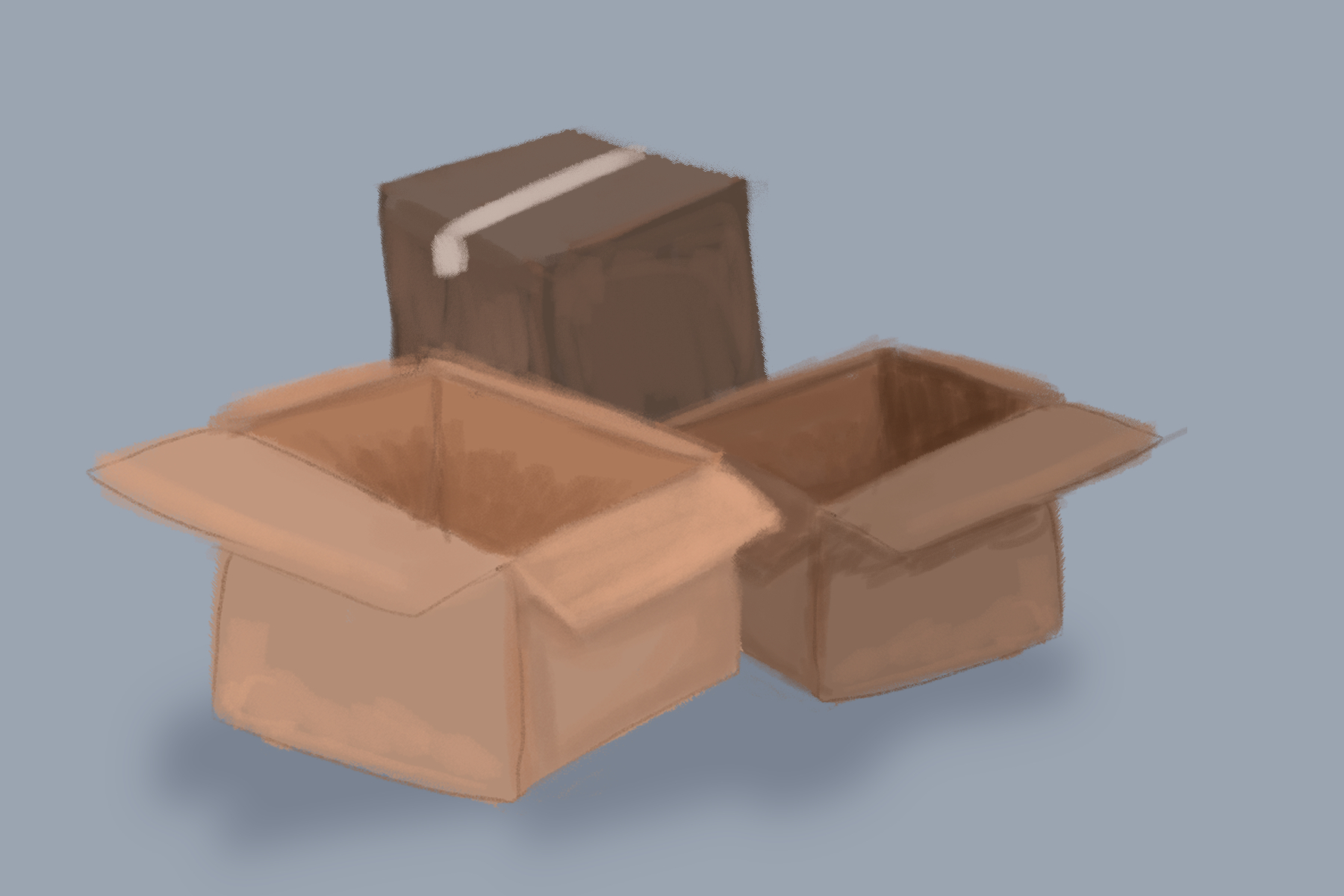Warning to the reader: Spoilers ahead for Unpacking.
While the basic premise of Unpacking, the newest zen puzzle game from Witch Beam, lies within its title, there’s a lot more than just houseware in those brown boxes. Essentially, you’re tasked with unpacking the baggage — both physical and emotional — of an unnamed protagonist, and continuously unraveling a deeper story with the careful placement of each item. The creators of Unpacking actually came up with the idea while they were moving in together and saw a lot of storytelling potential in what can be discovered about a person based on the items they own.
Unpacking follows one woman, whose identity remains anonymous, throughout important stages of her life. You unpack her childhood bedroom, her college dorm, various apartments and eventually a single-family home. Once completed, each level, marked by years spanning from 1997 to 2018, can be revisited via the main character’s scrapbook, accompanied by a quick note about her experience. They range from a child’s expression of excitement about moving into a new house (“Finally, my own room!”) to a young adult’s surprise at what living with multiple roommates entails (“Wait, we’re all sharing one bathroom?”) to an expecting mother’s sweet message to her unborn child upon finishing their nursery (“We’re so looking forward to meeting you!”).
The gameplay itself is simple and easy to get the hang of. You unpack various objects, placing them where you believe they go; once all of the boxes are completely empty at the end of the level, any items placed where they do not belong will glow red. Typically, it’s something small like a cookie jar belonging higher up on a shelf instead of being left out on the counter. But every now and then, it’s something you wouldn’t expect, like a photograph that needs to be tucked inside a drawer instead of pinned on a bulletin board. Moments like these make you question why our main character wants things this way. Why wouldn’t you display that photo? Did something happen between you and the person in the picture? While you won’t ever get an explicit answer, you’ll likely draw your own conclusions based on your own life experiences.
Clearly, there’s a lot of mystery surrounding the protagonist, as you never get to directly interact with her. Some details about her life and interests can be uncovered by taking a closer look at her current dwelling place or what you’re unpacking. She’s got an affinity for video games — they’re a constant from move to move, seemingly just as essential to her as cookware and toiletries. She’s a creative, with plenty of artwork scattered around her desk alongside colorful marker packs and a drawing tablet. Players paying extra attention might even notice that she’s been collecting a fantasy series in hardback that expands as the years go by.
“We wanted to use the movies, books and games as another way to say something about the person that owns them! So for the main character, we tried to think about what she would be into or what would have felt like ‘required ownership’ … Where it got really interesting was when other characters’ possessions were present — we got to try to describe their hobbies, tastes and interests too, as another way to suggest how they might match, compliment or clash with the central character,” said Tim Dawson, the technical director for Unpacking.
Dawson’s point about other characters’ items is especially evident in the 2010 level, which features our protagonist moving in with her boyfriend who doesn’t seem very open to sharing his space. It’s immediately apparent that their styles clash — her typically bright assortment of items stick out like a sore thumb among his black and gray home decor.
However, as players unpack the 2010 level, they’re emotionally struck by the specific placement of one particular item. Among many other things in the apartment, the posters on the wall cannot be moved by players, which leaves no room for the main character’s diploma. You’re given no choice but to store it under the bed, where it rests sadly next to some dumbbells. She writes, “Barely managed to fit in here!” in the scrapbook and despite the exclamation point, the note feels half-hearted. The next level, taking place in 2012, sees her moving back home, taking up residence in her childhood bedroom once again. A hard life lesson has clearly been learned.
It’s moments like these that bring you even closer to the main character, allowing you to empathize with her as she goes through these transitional and, at times, tumultuous periods in her life. All of this speaks to how effective the storytelling is, no matter how minimal it may be. Unpacking proves that a story game doesn’t need to provide players with immense levels of detail for them to connect with a character. Sometimes all it takes is the location of a diploma to tell someone everything they need to know about what a character is dealing with. You may not know her name but you know that she’s going through a rough patch and you’re rooting for her to get out of it and, lucky for you, Unpacking gives her just that.
In 2013, you help the protagonist move into her own apartment, complete with a great office for her to make art and plenty of wall space to proudly showcase her diploma. In 2015, she’s still at the same apartment and this time, you’re helping her girlfriend move in. Their decor goes together beautifully, the space livened up by plants and adorable figurines. Additionally, our protagonist has received a lot of awards for her artwork, each of which is displayed in her office, revealing that she’s had quite a successful career.
Lastly, in 2018, you help the couple move into their first home, complete with a nursery for their baby. The main character writes, “Thank you for joining me on this journey” on the final page of the scrapbook next to a photo of her, her partner and their newborn baby watching the sunset. The happy ending you know she deserved.
Outside of the game, unpacking is a stressful, sometimes even unpleasant chore. There aren’t fun stickers that appear when you stumble upon a special item and everything is significantly heavier. But Unpacking turns it all into a reflective experience. It is more than clear that the game’s creators want players to ponder where each item goes once it leaves the box, both in-game and in their own lives, with even the smallest of details serving as vital parts of the story being told.

















